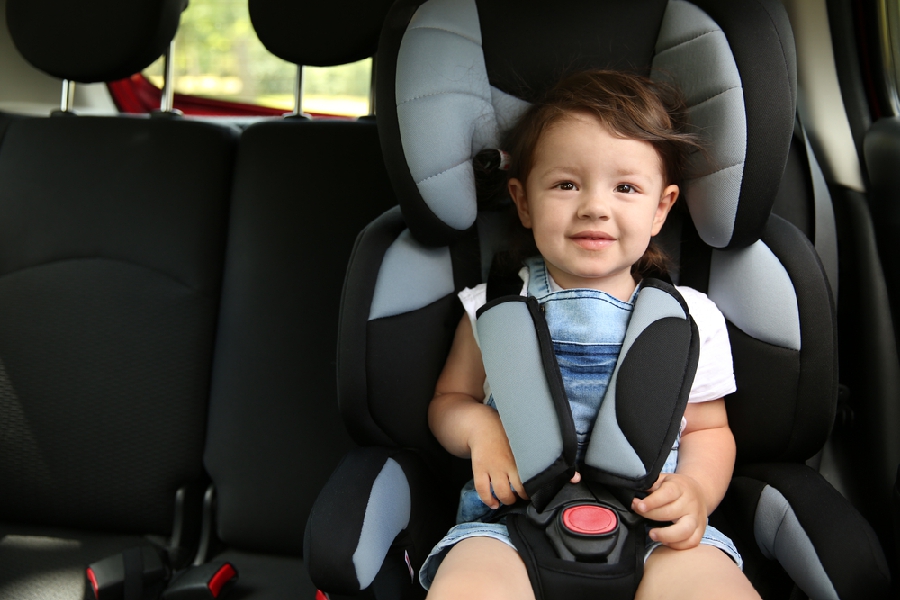- Study Says Most Parents Don’t Use Car Seats In Ride Share Vehicles Like Uber
- This 12-Year-Old Boy Is A Sophomore Aerospace Engineering Major!
- Fire Safety Experts Warn Of Hand Sanitizer Danger After A Mom and Kids Escape House Fire
- Recall Alert: Peaches May Be The Cause Of Salmonella Outbreak, 68 People Ill
- Summer Vacation In The Days Of COVID: Tips To Stay Safe
- How To Safely Grocery Shop During The Coronavirus Pandemic
- Michigan Teen With Vape-Related Illness Undergoes Double Lung Transplant
- Teen Kicks Off Anti-Vaping Campaign From Hospital Bed
- Teenager Receives Life Sentence For Strangling Sister To Death Over A Wi-Fi Password
- Toddler Falls To Death From 11th Deck of Cruise Ship
Police On The Lookout For Those Not Buckling Their Kids


This week is child passenger safety week and police are doing all that they can to enforce the laws.
Dothan PD sergeant Dennis Sallas says, “If you have a child in your car, they will be buckled in.” And that’s the exact message Dothan police want to get across.
Sgt. Sallas is a traffic officer. He says, “It is a proven fact that if you have a child buckled in, they have a better chance to survive a wreck.”
An accident happened last month near Abbeville where a five-year-old girl, not buckled in was ejected from a pickup truck.
She suffered cuts to the head and a broken arm. Her 11-month old brother was in a car seat and escaped with just a few scratches.
However, people not restraining their children is a problem everywhere and police say they are watching.
Sallas says, “The citation is $209.50.”
According to the Alabama Department of Public Safety, four out of five children in Alabama aren’t properly buckled in.
Sallas says that it isn’t as big of a problem as it used to be but one life lost is one too many.
“Sometimes we get calls, jut from the public if they see someone and we do all we can to try to find those people.”
86% of Parents Are Making This Surprising Mistake When Putting Their Baby in a Car Seat
A new study suggests that when it comes to car seats, it’s highly likely that you’re making a major mistake.
The study, which was published in the Journal of Pediatrics, says that a whopping 95 percent of parents are making at least one significant error when installing car seats and securing our kids in them.
Researchers, who surveyed about 300 parents, mostly moms aged 25 to 34, found that above all, 86 percent of families positioned their newborn in the seat incorrectly. This increases the chance of the baby being injured while driving, even without a crash.
“A number of studies have shown that an incorrect angle of recline can lead to injury to babies, especially if too upright, as the baby’s head can flop forward and obstruct the airway,” said study author Dr. Benjamin Hoffman. “Having a chest clip too low can allow the baby to slump, and there have been cases of strangulation as a result.”
Of all the car seats used within the study, 77 percent were installed incorrectly. What’s even more alarming is the fact that for most parents, it’s a combination of mistakes rather than a single trip-up: 50% of the study’s participants made five or more errors, while just one-fifth made a single error.
These were some of the more prevalent mistakes in both the installation phase and in the placement of the baby:
* 69% left the harness too loose
* 44% of car seats moved more than one inch from side to side
* 41% of car seats were installed at the incorrect recline angle
* 35% left the harness retainer clip too low
* 31% used the incorrect harness slot
* 21% used a nonregulated product, like a blanket, with their car seat
* 20% of car seats touched the front seats
“Mistakes are common because car seats can be complicated,” Hoffman said. “The manual for the car seat does explain all the recommendations, but they can be hard to understand, and many people may not read them for a variety of reasons.”
The results of this study note that 89 percent of the errors are deemed “critical” and it might make parents feel they are doomed to fail, however, Hoffman maintains that it should serve as motivation for moms and dads to educate themselves on proper infant car-seat safety.










0 comments